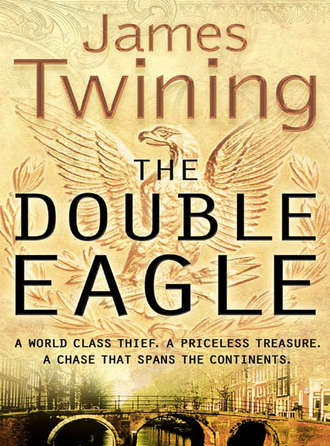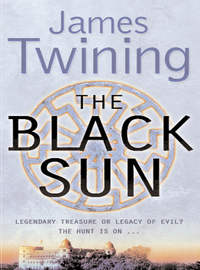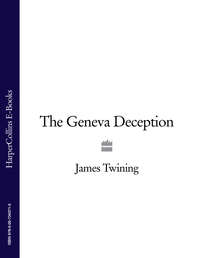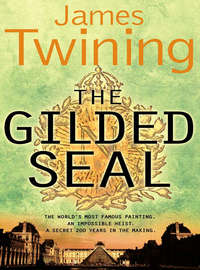
Полная версия
The Double Eagle
William Shakespeare – King Lear (Act IV, Sc. vi)
FIFTEEN
FBI Headquarters, Washington DC
22nd July – 2:07pm
The desk fan was on its highest setting. The vibrations had caused it to skip across the conference table’s slippery surface until it was balancing against the thin rim of metal that ran around its edge and threatening to throw itself over the side.
‘Okay – let’s just go through them one more time,’ Jennifer suggested, slurping the dregs of her now warm and flat coke. She dropped the empty cup into the overflowing trash can that sat on the floor between them. Special Agent Paul Viggiano raised his dark eyebrows wearily.
‘What for? We’ve been through every single guy like a hundred times. Cross-checked them with the CIA and the NCIC databases. Been through their bank records. Checked their wives, their parents, even their kids for Chrissake. There’s nothing here. They’re all clean.’
Jennifer got up and moved around the conference table, the overhead halogens reflecting here and there in the polished walnut.
‘Because we’re not leaving here till we find something,’ she said firmly, her eyes flicking between the piles of paper and files and boxes that had been strewn along the table’s length, the rubble of her two day investigation so far.
Viggiano stood up, a trim, muscular figure, his dark hair slicked back, his chin covered in a seemingly permanent five o’clock shadow. Shaking his head angrily, he tucked his white shirt back into his dark blue suit trousers – shiny fabric with a faint red thread running through it – as he spoke.
‘You know what? This whole thing stinks. It’s a goddamned mess.’ He slammed his fist down in front of him, the fan wobbling unsteadily before finally toppling off and plunging helplessly to the floor, the flex trailing behind it like a bungee rope that had been tied too long.
Jennifer had to agree. The whole thing was a mess. She knew that Corbett had fought to control the number of people in the loop over the last two days, but cases like this wouldn’t stay quiet for long. It was too good an opportunity for a fundraiser, a chance to put the boot in on some of the other departments and agencies and grab a bigger slice of the Federal budget in the process. It was the sort of story Washington lived and prayed for.
‘Yeah, it’s a mess, but it’s our mess,’ she retorted. ‘So you’re just going to have to deal with it.’
She replaced the fan on the table while Viggiano shook his head again and loosened his military-looking tie a little more. Jennifer knew that he was finding this harder going than she was. He was about ten years older than her and two years ago she’d worked on a case for him for a few months. He’d even made a clumsy pass in a bar that she’d brushed off as politely as she could. Now she was in charge and it clearly hurt, although his feelings were the last thing on her mind. She’d worked too hard for this opportunity to let Paul Viggiano screw it up for her. And although she hated to admit it to herself, she’d had to put up with so much crap over the last few years, it actually felt good to be on the other end for a change.
‘Look, I’ve been there, okay. I’ve seen the place,’ she continued, her voice hard and urgent. ‘We’re not talking about Macy’s here. You don’t just walk in and help yourself. Whoever did this had detailed knowledge of the vault’s layout and security systems. Very detailed.’
Viggiano snorted.
‘Big deal. Everything’s for sale at the right price. If someone wanted the plans for Fort Knox they could have got them. Money talks.’ Viggiano rubbed his thumb and forefinger together and held it up to Jennifer’s face with a thin smile.
‘You think they keep the details down at the local planning department? Layout, alarm systems, access codes?’ Jennifer asked sarcastically. ‘Everything about that place is classified. Jesus, they probably incinerate the grass clippings. It’s wrapped tight. I’m telling you, someone on the inside must have been involved. So we’re going to go through all of them again. Now.’
‘Fine. Whatever.’ Viggiano ran his hand through his thick quiff of dark hair in frustration and picked up the file where he’d thrown it down on the table earlier. ‘Where do you want to start?’ His eyes flashed at her, brimming with resentment.
‘Right at the beginning. With how many people have had access or actually been into the vault in the last twelve months. If we need to go back further we will, but let’s focus there first.’ Viggiano muttered under his breath as he counted the numbers again, consulting various sheets of paper that he picked up from in front of him.
‘Like I said before. Forty-seven people.’
‘Plus me. That makes forty-eight.’
‘What, you think I’m an idiot? You’re in the forty-seven,’ he said, his chin jutting in indignation.
‘I am? How do you work that out?’ Jennifer flicked through her hieroglyphic notes, adding numbers in her head.
‘Twenty-five guards from the Mint Police, fifteen military personnel, five Treasury officials and two Federal agents, one of which was you. Not that many people get down there.’ Viggiano held up the sheet of paper on which he’d done his sums and waved it in the air as if to prove his point.
‘That’s strange. Rigby told me there were twenty-six guards. That’s why I made it forty-eight,’ said Jennifer, her smooth brown forehead momentarily creased by a slight frown.
‘Who?’
‘Rigby. The Officer in Charge, remember?’ she said impatiently, although the corners of her mouth twitched at the memory of Sheppard’s pink trousers and Rigby’s ashen face.
‘Well according to the Treasury, it’s twenty-five. I got all the names here.’ He held up several sheets of paper by their corners between his thumb and forefinger. ‘They faxed them over this morning.’
‘Let me see those,’ she demanded. Viggiano shrugged and passed them over to Jennifer who scanned through the names carefully. She paused on the final sheet and then frowning, held it up to the light.
‘What?’ Viggiano’s tone was immediately defensive. Jennifer didn’t say anything but just gripped the sheet between her thumb and forefinger and rubbed them together. A second sheet peeled away from the first with a faint sucking noise. Viggiano went white.
‘Like I said, twenty-six guards,’ Jennifer said quietly, inspecting the single name at the top of the newly revealed sheet with a grim look on her face.
‘I don’t understand,’ Viggiano spluttered.
‘I guess the ink must have stuck them together.’ She knew that if their roles had been reversed, Viggiano would have come down on her hard for that sort of oversight, but that wasn’t her style. They both knew he had screwed up and as far as she was concerned that was that. There was certainly no point in rubbing his nose in it. What was important was seeing whether this new piece of information led them somewhere.
‘Tony Short.’ She read from the piece of paper, ‘DOB 18 March 1965. Deceased.’
‘Deceased? So he’s irrelevant,’ said Viggiano with relief.
‘He had access to the vault.’
‘But he’s dead.’
‘Only just.’ She laid the sheet on the table and pushed it over to Viggiano so he could read what it said for himself. ‘Four days ago.’
‘A coincidence.’ Viggiano sounded like he was trying to convince himself as well as her.
‘Maybe. But he’s the only one we haven’t checked out. What do we know about him?’ Viggiano turned to the laptop to his left and typed in the name. A file flashed up a few seconds later.
‘Ex NYPD. Medal of Honour. Transferred to the Mint Police five years ago. Married with kids. Usual boy scout shit. It’s all here. Deceased*.’ He looked up. ‘What’s the asterisk for?’
‘Suicide,’ Jennifer replied. ‘The asterisk means suicide.’
SIXTEEN
Clerkenwell, London
22nd July – 7:42pm
It had been a hat factory when it had first been built in 1876, according to the inscription chiselled into its once proud façade. Then, during the Second World War, production had been given over to the manufacture of buttons for RAF uniforms. By the time Tom had bought it, the building had fallen into disuse, the store and warehouse level empty, the three upper floors carved up into office space in the 1960s.
Tom had chosen the, by comparison, palatial surroundings of the Managing Director’s office as his bedroom. Inexplicably it came complete with its own marbled en suite bathroom, as if the former boss’s managerial mystique would have crumbled had the staff ever suspected that he used the toilet much like the rest of them.
Eventually, Tom’s idea was to have this top floor as a huge open plan living room complete with kitchen and dining area. The second floor would be bedrooms and bathrooms while the first … well he still hadn’t quite decided what to do with the first. More showroom space perhaps?
It didn’t matter. That was all in the future anyway, after the store was up and running. For now, he had to make do with the cracked mirror on the back of the bathroom door as he adjusted his tie, picking his silver cufflinks off the chipped filing cabinet that now doubled as a chest of drawers and deftly threading them through the double cuff of his Hilditch & Key shirt.
‘I’ll see you later,’ he shouted to Dominique as he clattered down the concrete steps, his footsteps echoing back up around the stairwell’s empty carcass.
‘Okay.’ She had appeared at the doorway to the second floor where she had taken up residence amid the tea-stained walls of the former finance department. ‘Have fun.’
Tom stepped out into a cherry sunset, the sun scrolling down through an orange sky, a warm whisper of air shushing through the streets. He liked seeing the city at this time. It was a strange transition period, when one set of users melted away and another appeared.
He soon reached Smithfield, Europe’s oldest meat market, a low slung amalgam of a refurbished cast-iron Victorian market hall and a post-war brick and concrete hangar. It was surrounded on all sides by a crenulated roofline of alternately short and tall warehouses, a jarring convergence of red brick and white stone, of Gothic windows and industrial steel shutters. Five minutes later he was in Hatton Garden, the centre of London’s diamond trade.
It was nearly empty. Gone were the eager shop assistants enticing you to enter, offering you their very best price, suggesting a pair of earrings to go with the necklace. Gone were the courier bikes and the security vans and the anxious soon-to-be-weds, comparing ring prices in gaudy shop windows. Their shutters had been drawn down, their contents safely stowed for the night, their neon lights extinguished.
And yet the street projected a latent energy. Rather than be asleep it was merely resting. A few Hasidim with pale faces and dark suits still stood in doorways, plunged into shops and buildings, swapped anxious glances from under their dark fedoras. Behind the scenes, the work went on, stones were cut, deals were done, hands shaken, money counted.
Perhaps because his own life had been so lacking in order, so devoid of any fixed reference points or rules, Tom was fascinated by this place. As in Smithfield, he drew an almost spiritual reassurance from the continuity of these streets, their daily cycle, the comforting embrace of their familiar routine. In a way, he craved their predictability.
Stepping in off the street, Tom presented his pass to the security guards on duty in the dingy fluorescent lobby of the Hatton Garden Safe Deposit Ltd. Sitting behind their barred window they inspected it carefully, flickering screens in front of them covering every angle of the lobby and vault and staining their faces blue. Satisfied, they buzzed him through the first door and then, when that had closed behind him, the second door with metal bars running through it.
The reinforced vault there, at the foot of the dark green linoleum stairs, is about seventeen foot square, its walls lined from floor to ceiling with 950 identically-sized tungsten and steel doors that gleam silver under the lights, each individual box numbered in black. Unusually for that time it was empty. That suited Tom perfectly.
He took a key out of his pocket and indicated to the guard who had followed him into the room which box he wanted opened. They both put their keys into the two separate keyholes and turned them. With a click, the door opened; Tom drew out the long black metal container it concealed and placed it on the metal tray that slid out from between two layers of boxes at about waist height. It was empty apart from another key which he removed. Turning to a second box on the opposite wall, he and the guard again inserted their keys. This time, Tom waited until the guard left the room before opening the black container.
He already knew what was in it but opened the small leather pouch it contained anyway, emptying its contents into his gloved hand. Just over quarter of a million in cut diamonds, his share for the Egg he’d stolen in New York. Much easier to move than cash and, if you knew who to ask, accepted in more places than American Express. He tipped the diamonds back into the pouch.
Reaching into his jacket pocket, he removed the Egg and placed it in the second box. He’d wrapped it in his ski mask, a small symbolic act that he knew wouldn’t be lost on Archie when he came to collect it. He slid the box back into the wall and locked the door. He then dropped the pouch and the key to the second box into the first box, returned it to the wall and again locked it shut.
He passed through the security gates again, nodded at the guards and then stepped out onto the street just in time to see the street lights buzz on.
SEVENTEEN
Louisville County Mortuary, Louisville, Kentucky
23rd July – 11:37am
Jennifer had always believed that there were no such things as coincidences, just different perspectives. From one perspective, a series of individual events could appear totally random with nothing binding them together other than their actual existence. A coincidence.
From another, however, events could evolve, become more complex, deepen in significance until they ultimately emerged as constituent parts of an overall pattern of cause and effect that could never have been dreamt of originally, let alone guessed at.
These were the facts as far as she could tell: Short had worked at Fort Knox. He was young and healthy. He was happily married with three children he adored. He was a regular churchgoer. And he was liked and respected at work. So from one perspective, the fact that he had committed suicide just a few days before the discovery that five gold coins had been stolen from Fort Knox, was just a terrible coincidence. And yet, when viewed from another, more cynical perspective, it was no coincidence at all. It was downright suspicious.
Corbett had agreed when she had finally managed to track him down the previous afternoon on his way to another internal meeting, a look of grim-faced resignation stamped across his face. He had greeted her with a tired smile.
‘Five minutes, Browne, that’s all I got. So you’d better make it quick. Let’s talk and walk.’
She had rapidly explained what she had found out about Short, choosing to omit Viggiano’s mistake, although she knew he wouldn’t have done the same for her. Corbett had clearly been impressed, even pausing to give her a pat on the side of the shoulder that had made her swell with pride.
‘So he didn’t leave a note?’
‘No.’ She had given a firm shake of her head. ‘All the witness statements say it was totally out of character. He was happily married and doing well at work. He just doesn’t fit the profile.’
‘I agree.’ A brief pause. ‘And you say he was one of the guards down at Fort Knox?’
‘Yeah. One of their star performers apparently. Whatever that means.’
‘And tell me again when this happened?’
‘Four days ago. That’s just two days after Ranieri was murdered in Paris.’
‘Hmmn.’ Corbett’s forehead had creased in thought.
‘The autopsy hasn’t happened yet. I spoke to the Louisville coroner’s office earlier and they’ve agreed to delay the procedure until tomorrow so I can observe. I’ve booked a flight.’
‘Good,’ Corbett had nodded as he reached the meeting room door he’d been heading for. ‘You’re right, it doesn’t add up. Let me know what you find. Oh and Browne…’ He had said as she turned away. ‘Nice work.’ She could almost have kissed him.
The mortuary was an anonymous white slab of a building on the outskirts of town, only a short drive from Louisville International Airport and screened from the road by a wall of cedar trees. Jennifer stepped gratefully out of the humidity’s dank embrace into the building’s refrigerated reception area.
There was a hint of desperation to the way it had been decorated, the walls painted a jarring concoction of pinks and blues, orange moulded plastic seating lining one wall. The Beach Boys was being piped through a lone ceiling speaker, the noise muffled where the protective mesh had been painted over by mistake.
An expressionless woman, funereally dressed behind a rectangular access hatch punched into the far wall, acknowledged her with a shrug, dialled a number and announced her arrival in a whisper. A few minutes later and a short balding man – about fifty years old, Jennifer guessed – bustled into the room, gold pocketwatch chain spanning his stomach before vanishing into the depths of his waistcoat pocket.
‘Agent Browne? I’m Dr Raymond Finch, the pathologist here. We spoke earlier on the phone.’
‘Hello.’ Jennifer shook his hand warmly, holding out her ID in her other hand, although she noticed that he barely gave it a glance. ‘Thank you for inviting me down here.’ He’d had no choice really but she knew that it never hurt to show a little humility, especially with the locals.
‘No problem. We’re pretty much good to go if you are.’
‘Great.’
He led her through a door, along a narrow corridor, down some stairs and then through a set of heavy double doors that swung open in front of them to reveal a small, white tiled ante-room. The temperature had dropped down here and her throat had a slight burning sensation from the cocktail of disinfectant and formaldehyde that seemed to grow stronger as she penetrated deeper into the building’s entrails.
‘You ever done one of these before?’ Finch handed her a long white gown that she slipped on over her black jacket and long skirt, taking one for himself to cover the pale green scrub suit he was pulling on. He then placed a set of plastic shoe covers over his brown deck shoes.
‘No.’
‘Well, it’s pretty straightforward. Ugly but straightforward. You’re welcome to sit out here until we’re done, if you like.’
He smiled sympathetically but Jennifer gave a firm shake of her head. She hadn’t travelled all this way to miss the action.
‘I’ve seen a lot of dead bodies, Doctor. One more won’t hurt.’
‘Okay. Then let’s get started.’
Finch led her through another set of double doors to the autopsy room. It was quite a wide space, perhaps twenty foot square and blindingly white. Powerful lights beat down on the spotless tiled walls and floor and reflected off the stainless steel worktops and glass fronted cabinets that wrapped themselves around two of the walls. In the middle of the room stood a stainless steel table, a waist-high slanted tray that had been plumbed for running water. A chrome hanging scale rocked gently in the air conditioning’s hum like a medieval gibbet.
‘So what’s the Bureau’s interest in this case?’
‘It’s just a routine enquiry. Nothing to get excited about,’ she lied, hoping that she had disguised the deceit in her answer better than Finch had disguised the curiosity in his original question.
‘Ah.’ She could tell he didn’t believe her. ‘Well, it may be routine for you but we don’t get too many suicides round these parts. And when we do, they tend to have put a gun to their head. So this is about as exciting as it gets.’
Конец ознакомительного фрагмента.
Текст предоставлен ООО «ЛитРес».
Прочитайте эту книгу целиком, купив полную легальную версию на ЛитРес.
Безопасно оплатить книгу можно банковской картой Visa, MasterCard, Maestro, со счета мобильного телефона, с платежного терминала, в салоне МТС или Связной, через PayPal, WebMoney, Яндекс.Деньги, QIWI Кошелек, бонусными картами или другим удобным Вам способом.




